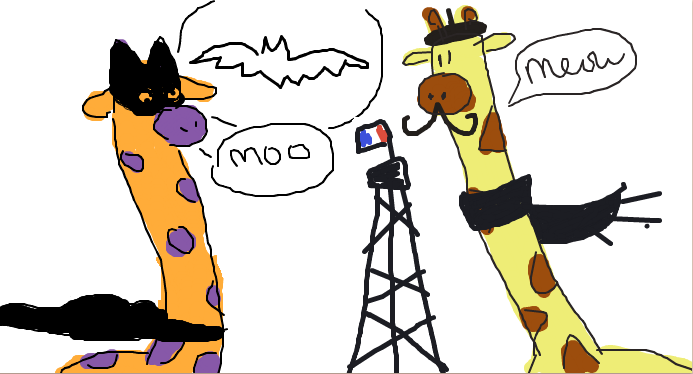French Cognates: The False Friend/Good Friend Dilemma
Sooner or later, every student in French faces a ‘false friend experience’. A French word that is referred to as a false friend is the one you are happy to encounter at first, because it looks like an English word and you feel confident in your ability to understand it. But then you realize that even though it looks familiar, you have absolutely no clue as to its true meaning.
No ‘une caméra’ is not a camera, ‘une cave’ is not a cave, and ‘une librairie’ is not a library. These French words mean a movie camera, a cellar and a bookstore respectively. What you want to say instead is ‘un appareil photo (a camera), ‘une grotte’ (a cave) and ‘une bibliothèque’ (a library).
 Photo by Wiki Commons
Photo by Wiki Commons
In some cases, French words of Latin origin were added to the English language centuries ago and although their meaning remained the same in English, they have evolved within the French language. In other cases, these words are just homographs (same spelling but different meanings).
For example, if you’re asked to ‘résumer’ your lesson, it will not mean to resume it but to sum it up. If a friend ‘passe’ an exam, you might want to wait before congratulating them –‘passer’ means simply to take the exam, not to pass it. Lastly, if you are asked for your favorite ‘romans’, no need to recall your history class days of Cesar or Pilate because you’ve simply been asked which novels you like.
 Photo by Ani-Sempai
Photo by Ani-Sempai
Good Friends to the Rescue
Fortunately, not all words that look alike in French and in English are false friends. Some are good friends in which you can rely on in certain situations. Suppose that you are having a conversation in French and suddenly, there is a word you’re desperately looking for but cannot find, either because you don’t know it or you can’t remember it. Let’s say you are searching for the French word for ‘weird’. Words of Anglo-Saxon origin like ‘weird’ are most often used in English conversations and they will not be of any help in your search of a French equivalent.
The solution resides in the English words that are mostly used in literature. Going back to our example, you could think of ‘bizarre’ that you would be less likely to use when you speak English, compared to ‘weird’. There is your luck: ‘bizarre‘ is also a French word. All you have to do is to say it with the most brilliant French accent and you will be perfectly understood! (Of course, there are many different French accents, but it will be the subject of an upcoming article.)
Whatever gives you confidence enhances your speaking skills. If you realize that by knowing English, you already have a large number of French words in your vocabulary, this is something that is worth considering even though it doesn’t always succeed.
